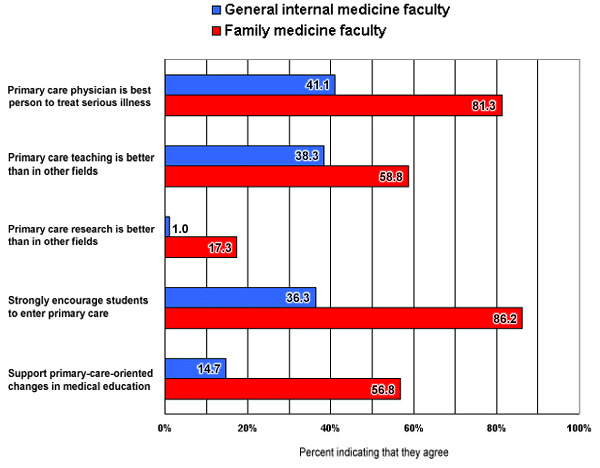
Fam Pract Manag. 1998;5(6):74
Family medicine faculty have a high level of enthusiasm for primary care that their counterparts in general internal medicine apparently do not share. In a recent survey comparing faculty members' attitudes toward primary care, family medicine faculty were more likely to encourage students to enter primary care and were more likely to believe that the primary care physician is the best person to treat serious illnesses.
